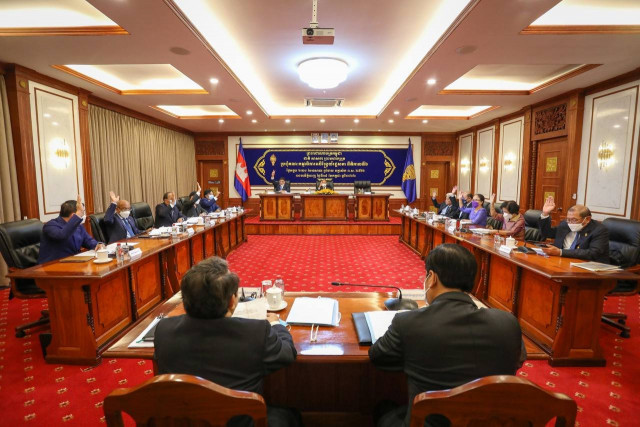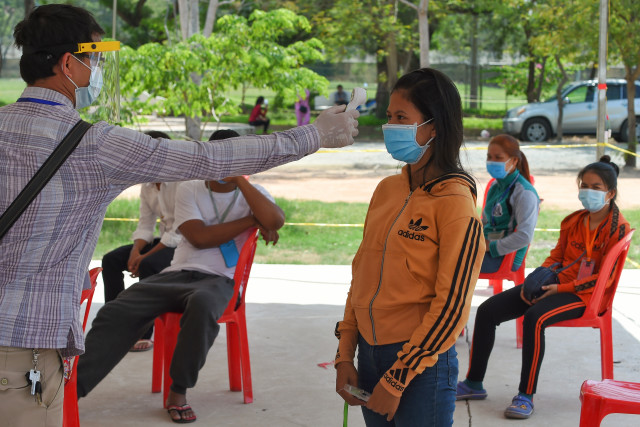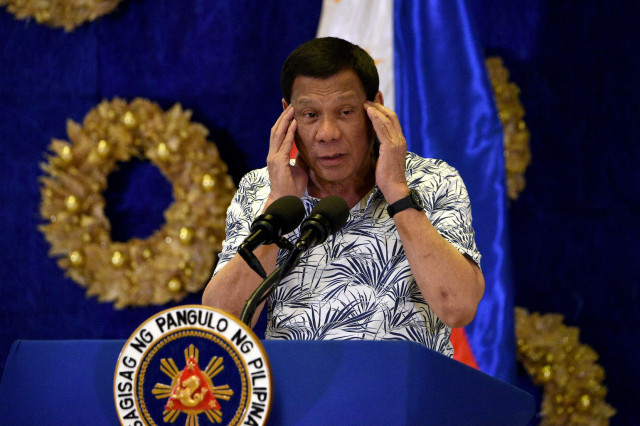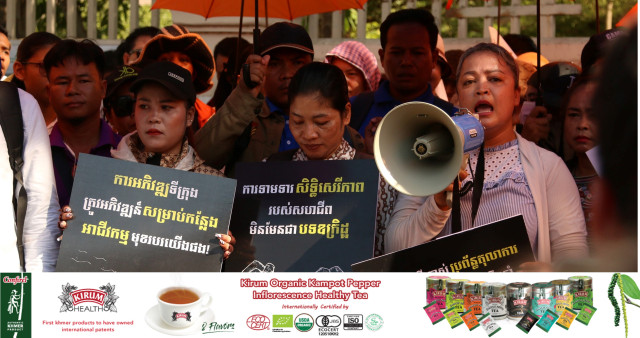National Assembly to Review Proposed Constitutional Changes

- By Mao Sopha
- July 19, 2022 5:12 PM
PHNOM PENH – The National Assembly Standing Committee on July 19 agreed to accept the draft law that proposes to amend the Constitution, as proposed by the government.
The review of the draft law by the National Assembly Standing Committee, which was chaired by the president of the National Assembly Heng Samrin, went smoothly.
Leng Penglong, secretary general and spokesperson of the National Assembly said that the Committee will send the draft law to the Legislative and Justice Committee, a specialized body inside the house, to proceed to a detailed review.
Once the expert committee will have reviewed the proposed amendments, the draft law will be sent back to the Standing Committee, which will set a date for a plenary session dedicated to reviewing and voting the draft law. All the 125 seats being owned by Hun Sen’s Cambodian People’s Party, there is no doubt that the draft amendments will be approved.
The draft bill will then be sent to the Senate and to the Constitutional Council, before receiving the final approval of King Sihamoni.
The articles being amended are divided into two groups. A first group is composed of six articles (19, 89, 98, 102, 119 and 125) from the original 1993 Constitution. The two other articles being amended are art. 3 and 4 of the Additional Constitutional Law, an appendix to the Constitution.
The Ministry of Justice said that the amendments aimed to fill in gaps of the original Constitution to ensure the political stability between two mandates, as well as to protect the national interest.
But political representatives from the opposition fear further deteriorations of the Cambodian fragile democratic system. Yang Saing Koma, founder of Grassroots Democratic Party (GDP) said that these proposed amendments are very detrimental to the parliamentary political pluralism principle.
Among the several proposed amendments, the revision of article 119, which rules the nomination of the prime minister, is at the heart of concerns.
The current version of the article states that upon the proposal of the president of the National Assembly, in agreement with the two vice-presidents, the King assigned a member among the members of the National Assembly from the election-winning party, to form the Royal Government.
But the draft version of that same article would grant a lot of power to the political party which emerged victorious from the election, without any mention of having to win a majority of the seats. It states that upon “the proposal of a party with more seats than others in the National Assembly, the King assigns a member as a Prime Minister to form the Royal Government. The proposal from the party with the most seats in the National Assembly must give a copy for the President of the National Assembly. A high ranking personality who would be appointed as a Prime Minister has to be a lawmaker with single Khmer nationality and has to be chosen from a party that has more seats than others in the National Assembly.”
Since its inception in 1993, the Cambodian Constitution has undergone nine amendments. The upcoming revision would thus be the tenth. The ninth amendment was made at the end of 2021, which determined that Cambodia's top four leaders–which are the prime minister and the presidents of the Constitutional Council, the Senate, and National Assembly– must have single Khmer nationality. A move that has been seen as a way to prevent prominent political opponents of the dissolved Cambodia National Rescue Party (CNRP) from participating in future elections. Sam Rainsy and Mu Sochua, respectively CNRP’s acting president and vice-president, both hold dual citizenship.















